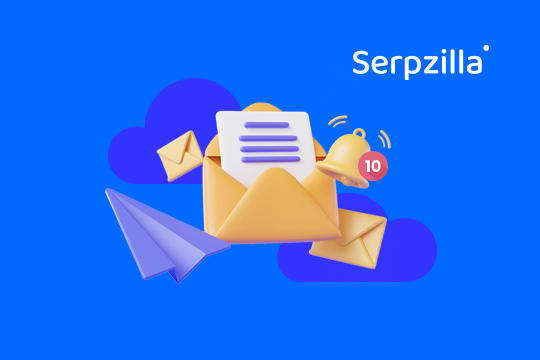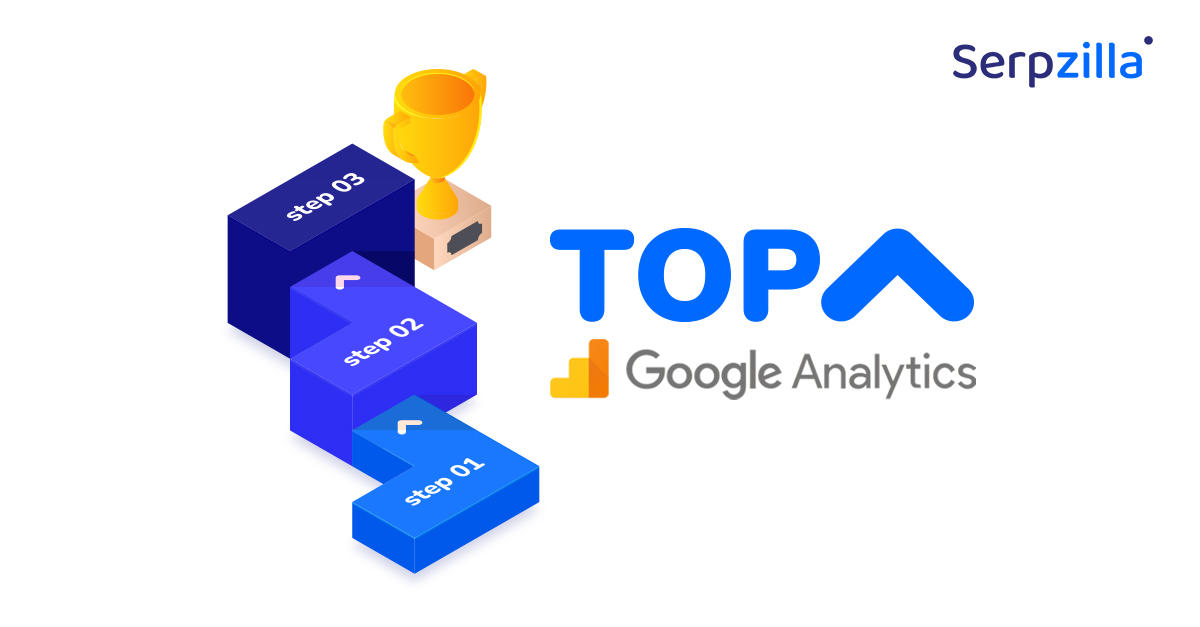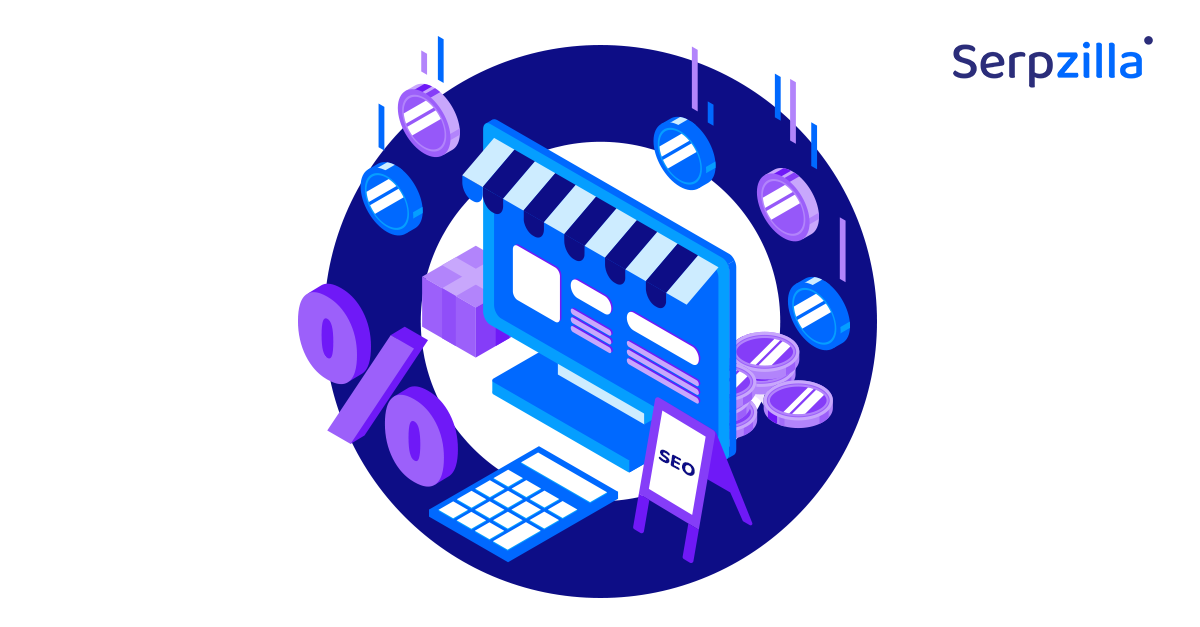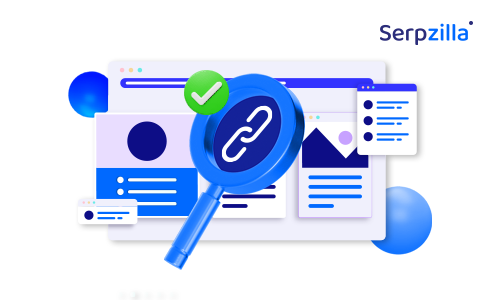AI is transforming every sphere of human and business activity. New AI tools are emerging to optimize workflows, take on repetitive “monkey job” tasks, and support workers by reducing human errors. SEO is no exception. Over the last couple of years, we’ve seen the rise of multiple AI-powered SEO tools that help specialists automate, optimize, speed up, and error-proof their daily tasks.
Maybe AI will not fully replace human workers in SEO in the next few years, but one thing is certain: SEO specialists who know how to use AI features to the maximum will replace those who don’t. According to a recent survey by InfluencerMarketingHub, the majority of SEO specialists still haven’t introduced AI into their workflows:
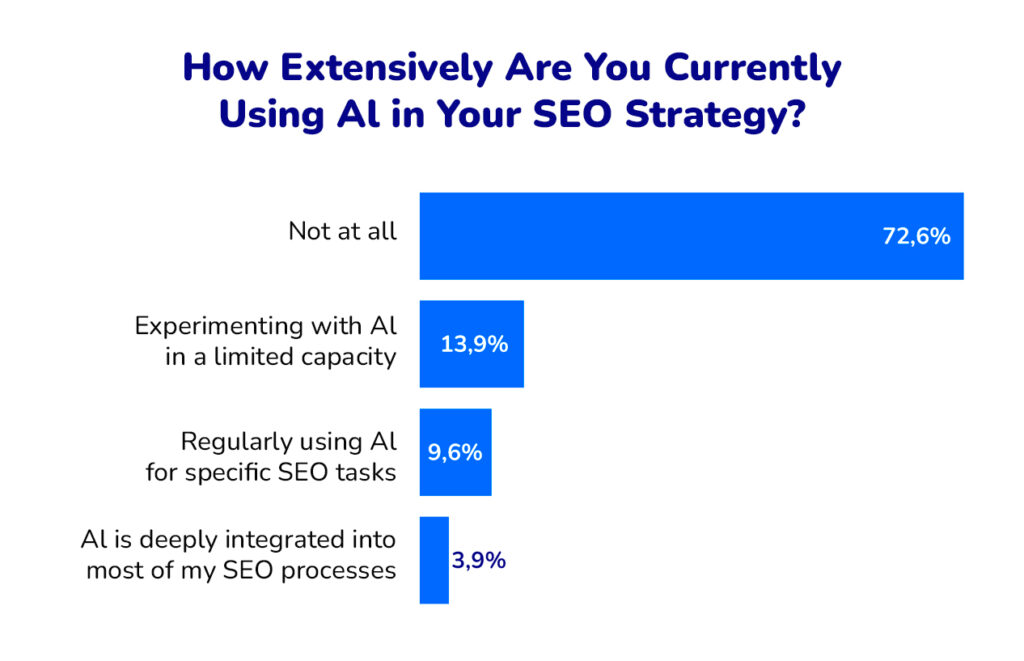
In this article, we’ll take a detailed look at which top AI SEO tools you can use in your daily SEO tasks to boost your performance and productivity.
What Are AI SEO Tools and Why Do They Matter?
AI SEO tools are software platforms and apps that use artificial intelligence and machine learning to make search engine optimization faster, smarter, and more effective. AI-powered tools can analyze massive datasets, recognize patterns, and even predict what kind of content or backlinks will perform best. They leverage the advantages AI provides for any activity; work with massive data arrays, leaving no blank spots; are excellent at analysis, especially when effectively guided and prompted; and make no errors typical for humans, such as typos, omissions, and overlooking.
Put simply: AI SEO tools help SEO marketers and businesses adapt to a search landscape where Google, Bing, and other search engines themselves are increasingly powered by AI.
AI’s Role in Modern SEO Workflows
The evolution of search engines has recently taken a new turn – one closely connected to AI. With features like Google AI Overviews and Bing Copilot, content is not just ranked, it’s rehashed, synthesized, and presented directly to users in conversational formats.
Users more often select AI-powered chatbots such as ChatGPT, Claude, Gemini, and Perplexity for tasks previously associated with Googling and traditional internet searches. This is especially true if they have a nuanced or complex query and want to get a concise, one-page summary instead of having to look through several pages in SERPs.
Naturally, several new fields have emerged in content optimization. Now, in order to keep up your visibility level, you also need to optimize for AI features of traditional search engines, such as AI Overviews, and Bing Copilot (known as Generative Engine Optimization, or GEO).
Additionally, you want your content to be used as a source of information for answer engines and chatbots (Answer Engine Optimization, or AEO).
At the same time, you cannot afford to lower the bar for your traditional SEO.
AI tools fit into this shift by:
- Monitoring AI search features so you know if you’re cited in AI answers.
- Generating and optimizing content that matches the semantic and contextual needs of searches.
- Clustering and analyzing keywords in ways that mirror how both traditional engines and AI-powered search tools understand intent.
- Automating repetitive SEO tasks like audits, link prospecting, and on-page optimization.
As you can see, AI isn’t replacing SEO, but it’s drastically changing how SEO work is done.
Key Benefits: Speed, Scale, and Strategy
AI SEO tools bring three big advantages:
- Speed – When you automate tasks like keyword research, content briefing, or backlink outreach, you can save hours of manual effort for tasks that require a human touch, such as effective communication, decision-making, or creative tasks.
- Scale – AI can process millions of data points at once, spotting opportunities you’d miss by hand and covering all the potential blank spots.
- Strategy Support – With predictive insights, AI tools help you plan campaigns based on where search is heading instead of where it has been and make your SEO strategy more future-proof.
Together, these benefits let SEO professionals focus less on data crunching and more on making strategic, creative decisions.
AI SEO vs Traditional SEO Tools
The main difference comes down to intelligence and adaptability:
- Traditional SEO tools:
- Report what has already happened (traffic, rankings, backlinks).
- Require manual analysis to find more sophisticated and less evident patterns.
- Limited in handling context or search intent.
- Report what has already happened (traffic, rankings, backlinks).
- AI SEO tools:
- Predict what will work in evolving SERPs, including AI features.
- Automate clustering, auditing, and optimization at scale.
- Understand language and semantics, not just keywords.
- Predict what will work in evolving SERPs, including AI features.
👉 In practice, most SEOs will use a mix of both: AI tools for scaling and predicting, and traditional tools for reliable reporting and verification.
Top 25 AI SEO Tools to Try in 2025
A Quick Shoutout: ChatGPT, Gemini, Claude, & Co
Before we dive into the list of dedicated AI SEO tools, it’s worth mentioning a few general-purpose AI answer engines. These are not SEO tools per se but they have become everyday companions for SEOs nonetheless:
- ChatGPT (OpenAI): Widely used to generate content drafts, brainstorm keywords, summarize competitor pages, and simulate how AI-driven search engines might interpret queries. With custom GPTs and plugins, it can even help SEO professionals test prompts and explore structured data.
- Gemini (Google): Natively tied to Google’s search ecosystem, Gemini can be used to understand how Google frames answers, test conversational prompts, and even generate schema or content briefs aligned with Google’s latest NLP understanding.
- Claude (Anthropic): Known for handling large amounts of text, Claude is particularly useful for long-form analysis, content rewriting, and processing SEO reports.
- Perplexity AI: Functions as an AI-driven search engine, making it valuable for monitoring how AI citation engines pull sources and spotting opportunities to get your brand mentioned. Also excellent for deep research with clear citations.
👉 While these platforms don’t offer built-in SEO metrics or dashboards, they’re practical assistants in many SEO workflows, such as content ideation, draft writing, SERP simulations, FAQ generation, and even outreach personalization.
That’s why we aren’t including them in the official list of 25 SEO tools — but ignoring them would be a mistake. Almost every SEO specialist today uses at least one of these answer engines in their daily work.

And now, to the actual best AI SEO Tools list:
We have grouped the tools by functionality, purpose, and aspects of SEO they cover.
AI Tools for GEO (Generative Engine Optimization)
Ahrefs Brand Radar
Description
Ahrefs Brand Radar is an AI-powered feature (part of the Ahrefs suite, available in lite and higher plans) that helps SEO and marketing teams track how their brand appears across AI-driven search engine features, chatbots, and AI-search platforms. It visualizes brand visibility, competitor comparisons, prompt clusters, and web mentions all in one dashboard, offering early insights into AI-driven brand exposure.
Key Features
- AI Visibility Tracking: Monitors brand appearances in AI-generated search features and AI search platforms.
- Search Demand & Web Visibility: Tracks branded search volume trends and web mentions (both linked and unlinked).
- Competitive Benchmarking: Allows side-by-side comparison of AI visibility across competitors.
- Prompt Clustering & Topic Gaps: Groups AI prompts into themes to help identify content gaps and new opportunity areas.
Pros & Cons
Pricing
- Ahrefs Brand Radar is included in Lite and higher subscriptions (Lite plan starts at around $129/month or $99/month when billed annually).
- Tracking AI across ChatGPT, Perplexity, and similar platforms now requires $99/month per AI index as an add‑on following its beta release.
- Enterprise-grade tools like Brand Radar can effectively cost around $699/month.
Ahrefs Web Visibility
Description
Ahrefs Web Visibility is a metric within the Ahrefs platform that measures how much overall visibility a website or brand has in search results, relative to competitors. It gathers rankings, traffic estimates, and keyword coverage into a single score, which gives specialists a birds-eye overview metric of their website’s visibility online. While not limited to AI search, this metric is increasingly positioned by Ahrefs as part of its AI visibility toolset, helping track presence in both traditional and AI-driven SERPs.
Key Features
- Comprehensive Visibility Score: Measures how prominent a site is across organic search queries.
- Competitor Benchmarking: Compares a site’s visibility directly against industry competitors.
- Historical Trends: Tracks growth or decline in visibility over time.
- Keyword Coverage Insights: Understand which keyword groups contribute most to visibility.
- Integrated Dashboards: Available directly inside Ahrefs’s Overview and Rank Tracker tools.
Pros & Cons
| Pros | Cons |
| Provides a simple, at-a-glance score for SEO visibility. | Not exclusive to AI search; primarily rooted in traditional SERPs. |
| Integrated into Ahrefs’s broader analytics and reporting. | Dependent on keyword tracking setup—coverage may be incomplete. |
| Useful for competitive benchmarking. | Doesn’t provide granular context about how visibility translates into actual traffic or revenue. |
| Clear visualization of trends over time. | Requires a paid Ahrefs subscription (no standalone availability). |
Pricing
- Included in Ahrefs’ standard subscription plans starting from Lite (€129/month).
- Higher tiers (Standard, Advanced, Enterprise) expand the number of keywords, competitors, and historical data available.
- No separate purchase required; Web Visibility is bundled within Ahrefs’s core analytics toolset.
Semrush Presence Rate
Description
Semrush Presence Rate is a metric within the Semrush platform that measures how often a website appears across AI-driven search results and traditional SERPs. It was introduced as part of Semrush’s push into AI SEO tracking. Its purpose is to help SEO specialists understand rankings as well as brand presence in AI-powered answers like Google AI Overviews and Bing Copilot.
Key Features
- Presence Tracking: Measures the percentage of times your site appears in AI-generated search features.
- Cross-Channel Visibility: Covers both traditional SERPs and emerging AI search contexts.
- Competitor Comparison: Analyzes your Presence Rate against industry peers.
- Trend Monitoring: Historical data helps track how your visibility evolves as AI features expand.
- Integrated Reporting: Available directly in Semrush dashboards alongside other SEO KPIs.
Pros & Cons
| Pros | Cons |
| One of the first standardized metrics for AI search visibility. | Still relatively new, so its coverage may not yet be exhaustive. |
| Seamlessly integrated into the Semrush ecosystem. | Accuracy depends on Semrush’s crawling/AI monitoring data. |
| Offers historical tracking and competitor benchmarking. | Limited transparency into how Presence Rate is calculated. |
| Useful KPI for reporting AI search performance. | Requires higher-tier subscription for full data. |
Pricing
- Available as part of the Semrush SEO Toolkit subscription.
- Plans start at Pro ($129.95/month), with Guru ($249.95/month) and Business ($499.95/month) offering higher limits and advanced features.
- Presence Rate is not a standalone tool, it’s bundled into Semrush Position Tracking and related modules.
Semrush Position Tracking
Description
Semrush Position Tracking is a core feature of the Semrush SEO Toolkit. It was originally used to monitor keyword rankings on a daily basis across Google and Bing. Recently, Semrush has enhanced this feature with AI-driven insights, so it now also tracks visibility in AI-powered SERP features like Google AI Overviews and Bing Copilot.
Key Features
- Daily Rank Tracking: Monitor keyword positions across multiple search engines, devices, and locations.
- AI Feature Visibility: Identify when your pages appear in AI Overviews, Featured Snippets, or Bing Copilot responses.
- Competitive Benchmarking: Allows adding competitors for side-by-side position comparison.
- Segmentation: Tracks rankings for specific pages, keyword groups, or custom tags.
- Mobile & Local Tracking: See how rankings and AI visiblity vary by device and geography.
- Integrated Alerts: Get notifications when rankings or AI visibility change significantly.
Pros & Cons
| Pros | Cons |
| One of the most robust rank-tracking tools on the market. | Data collection limited to keywords you’ve manually added. |
| Now includes AI-driven visibility insights (AI Overviews, snippets, etc.). | Full capabilities may require higher-tier plans. |
| Excellent for local and mobile SEO tracking, including AI SERPs. | Can get expensive if tracking large keyword sets. |
| Reliable daily updates and competitor benchmarks. | Focused on rankings, less on content or backlink strategies. |
Pricing
- Part of the Semrush SEO Toolkit.
- Pro plan ($129.95/month): up to 500 keywords tracked.
- Guru plan ($249.95/month): up to 1,500 keywords + historical data.
- Business plan ($499.95/month): up to 5,000 keywords + API access and advanced reporting.
- AI visibility tracking is included in Position Tracking, no separate purchase required.
Gloc.al AI SERP Tracker
Description
Unlike the previous tools, Gloc.al AI SERP Tracker is a tool you can specifically use to monitor how websites and content appear in AI-driven search features of regular search engines and AI search platforms, such as Google AI Overviews, Bing Copilot, and Perplexity. Unlike traditional rank trackers, it focuses on Generative Engine Optimization (GEO), so you as an SEO specialist can get direct insights into where and how AI systems surface your content.
Key Features
- AI Overview Tracking: Monitors citations and mentions in Google AI Overviews.
- Bing Copilot & Perplexity Monitoring: Tracks when your site is referenced in conversational AI results.
- Local & International Coverage: Provides data across multiple regions and languages.
- Competitor Analysis: Identifies competitors cited in AI responses to uncover content gaps.
- Custom Alerts: Notifies you when your site gains or loses AI visibility.
- Historical Trends: Visualizes performance in AI features over time.
Pros & Cons
| Pros | Cons |
| Purpose-built for AI SERP and GEO tracking. | Newer tool, so coverage is still expanding. |
| Covers multiple generative engines and AI-features. | Smaller ecosystem compared to established SEO giants. |
| Supports local SEO and international monitoring. | Data accuracy may vary in niche languages or regions. |
| Alerts & trend reports make it actionable | Separate subscription, not bundled with other SEO suites. |
Pricing
- Entry plan starts at around $49/month, covering a limited number of keywords/queries.
- Higher tiers ($99–$199/month) expand keyword limits, competitor tracking, and multi-region support.
- Enterprise packages are available on request for agencies with large portfolios.
SERP API
Description
SERP API is a developer-focused platform that provides structured access to search engine results, including Google, Bing, Yahoo, Baidu, Yandex, and emerging AI SERP features. It delivers real-time SERP data in JSON format, making it easy to integrate AI visibility tracking into custom dashboards, SEO tools, or reporting pipelines. Many SEO agencies and SaaS providers use SERP API to power their own GEO monitoring and rank tracking solutions.
Key Features
- Real-Time SERP Data: Provides fresh data from Google and other engines on demand.
- AI Features Coverage: Extracts results from Google AI Overviews, Featured Snippets, People Also Ask, Knowledge Panels, etc.
- 100% JSON Output: Developer-friendly format for custom integrations.
- Scalable Infrastructure: Handles millions of queries at scale with low latency.
- Custom Parameters: Location, device type, language, and search engine options.
- Automated Captcha Solving: No need to manage proxies or IP bans.
Pros & Cons
| Pros | Cons |
| Provides raw, real-time SERP & AI data in a structured format. | Requires technical skills to use (API integration, coding)/ steep learning curve. |
| Supports multiple search engines beyond Google. | Pricing can get expensive for high query volumes. |
| Reliable infrastructure, avoids proxy/CAPTCHA headaches. | No native SEO dashboards, so your own DIY reporting is required. |
| Highly scalable for agencies and SaaS providers. | Purely a data provider, not an out-of-the-box SEO tool. |
Pricing
- Free plan: 100 queries/month.
- Hobby plan: $50/month for 5,000 queries.
- Production plan: $250/month for 30,000 queries.
- Business & Enterprise: Custom pricing for millions of queries at scale.
- Pricing is based on query volume, with all features included at every tier.
peec.ai
Description
peec.ai is another GEO-specific tool on the list. You can use it to track how your content is cited across AI-driven SERPs and AI platforms like Google AI Overviews, Bing Copilot, ChatGPT, and Perplexity. It focuses on citation tracking, showing when and where AI systems pull your site’s content to generate answers, which makes it one of the few tools designed specifically for the emerging AI search ecosystem.
Key Features
- AI Citation Tracking: Monitors if your website is referenced in AI-generated answers.
- Cross-Engine Monitoring: Covers Google AI Overviews, Bing Copilot, ChatGPT, Perplexity, and more.
- Competitor Insights: Identifies competitors cited in AI answers so you can analyze their strategies.
- Content Opportunity Detection: Highlights prompts and topics where your content is missing.
- Trend Reports: Visualizes your AI citations over time to measure growth or loss.
- Notifications: Alerts when your content gains or loses AI citations.
Pros & Cons
| Pros | Cons |
| One of the first tools built specifically for AI citation tracking. | Still relatively new, data coverage may expand over time. |
| Covers multiple answer engines and AI SERP features (Google AI Overviews, Bing, ChatGPT, Perplexity). | Accuracy depends on how well the tool detects citations in proprietary AI engines. |
| Actionable competitor analysis based on citations. | Limited ecosystem vs. larger SEO platforms. |
| Clear reports and trend visualizations. | Separate subscription — not bundled with bigger SEO toolkits. |
Pricing
- Starter plan: from $29/month, covering limited AI queries and basic tracking.
- Pro plan: $79–$99/month, with expanded coverage and competitor insights.
- Agency/Enterprise tiers: custom pricing for large-scale monitoring and multiple projects.
AlsoAsked
Description
AlsoAsked is a keyword research and SERP analysis tool that helps you understand the logic of how Google’s “People Also Ask” (PAA) questions are connected. Since PAA queries increasingly feed into AI-generated answers (like Google AI Overviews), this tool is essential if you want to understand question clusters and optimize content for queries most likely to surface in AI search features.
Key Features
- PAA Mapping: Shows the relationships between primary keywords and follow-up questions.
- Question Clustering: Groups related questions into themes to uncover topical depth.
- Export Options: Downloadable results in CSV, Excel, or PNG for reporting.
- Multi-Language Support: Works across different regions and languages.
- Historic Data: Monitors how PAA questions evolve over time for certain topics.
Pros & Cons
| Pros | Cons |
| Simple, visual way to explore query relationships. | Data limited to what’s available in Google PAA. |
| Great for uncovering long-tail, AI-friendly queries. | Requires multiple searches for broad topic coverage. |
| Supports exports for reporting and team use. | Limited free searches; requires paid plan for scale. |
| Easy to use, minimal learning curve. | Doesn’t integrate deeply with broader SEO platforms. |
Pricing
- Free tier: limited daily searches.
- Basic plan: $15/month – up to 100 searches.
- Lite plan: $29/month – up to 300 searches.
- Pro plan: $59/month – up to 1,000 searches.
- Agency plan: $99/month – up to 3,000 searches, multiple users.
Keyword Insights
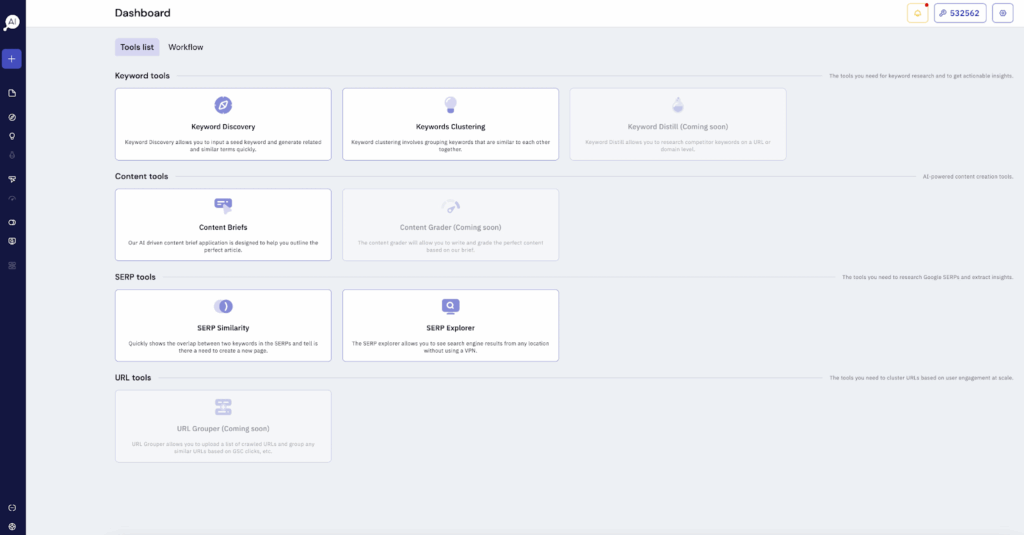
Description
Keyword Insights is an AI-powered keyword research and clustering tool. You can use it to discover how queries group together semantically and the logic behind them appearing in search results. Since SERP features like Google AI Overviews and generative engines rely heavily on topic clusters instead of isolated keywords, Keyword Insights is particularly useful for Generative Engine Optimization (GEO).
Key Features
- Keyword Clustering: Automatically groups keywords into semantic clusters using AI.
- SERP Similarity Analysis: Determines which keywords are likely to rank together.
- Search Intent Detection: Labels clusters with intent (informational, commercial, transactional).
- Content Briefs: Generates AI-assisted outlines for targeting keyword clusters.
- Competitor SERP Data: Analyzes top-ranking pages for chosen clusters.
- Geographic & Language Targeting: Cluster analysis across multiple regions and languages.
Pros & Cons
| Pros | Cons |
| Automates keyword clustering with AI → saves time. | Credit-based pricing — heavy users may run out quickly. |
| Directly supports topic authority building, key for GEO. | Requires sufficient traditional SEO knowledge to interpret clusters, |
| Helps predict which clusters will surface in AI answers, | Not as comprehensive as full SEO suites (Semrush, Ahrefs), |
| Generates content briefs from keyword groups. | Separate tool which doesn’t integrate natively with big SEO platforms. |
Pricing
- Starter plan: $58/month – 6,000 credits.
- Basic plan: $145/month – 18,000 credits.
- Premium plan: $290/month – 60,000 credits.
- Enterprise plans: available for agencies or teams with higher query volumes.
- Pricing is credit-based, with each keyword or cluster consuming credits.
AI Tools for Link Building and Outreach
Serpzilla (Smart Topic AI)
Description
Serpzilla is a large-scale link building marketplace. Its Smart Topic AI feature matches backlink opportunities with your content’s context, so that your backlinks are topically relevant and safe from penalties. It’s designed for SEOs who need scalable, trustworthy backlink acquisition with advanced filtering.
Key Features
- Smart Topic AI for contextual backlink matching.
- 40+ filters (traffic, DR, TF, niche, geo) to refine opportunities.
- Dashboard for campaign management and reporting.
- Pre-vetted publishers to reduce spam risk.
- Bulk buying and automated placement management.
- Integration with Semrush for referring domain research.
Pros & Cons
| Pros | Cons |
| AI ensures backlinks are topically relevant. | Marketplace model is not universally liked |
| Large inventory across niches & geos. | Best results require SEO knowledge to filter correctly. |
| Transparent pricing and filters. | Smaller budgets may limit access to premium placements. |
Pricing
- Free account signup.
- Pay‑per‑placement for guest posts and link insertion or a monthly subscription for rental links (niche edits and sitewide links). Links typically start at $2–3; premium placements cost more.
Respona
Description
Respona is an AI-powered outreach and PR tool. It automates prospect discovery, email personalization, and campaign management, helping conduct relationship-driven outreach.
Key Features
- AI Prospect Finder: Identifies journalists, bloggers, and site owners.
- Personalized Outreach: AI generates customized email templates.
- Automated Campaigns: Manages follow-ups and track replies.
- Team Collaboration with shared inbox and campaign analytics.
Pros & Cons
| Pros | Cons |
| AI-driven personalization increases response rates. | Requires learning curve to set up workflows. |
| Great for link building and digital PR. | Pricing higher than simpler outreach tools. |
| Integrates with SEO data sources for precise targeting. | Success depends on quality of outreach strategy. |
| Automates follow-ups and saves time. | Not great for small-scale link building. |
Pricing
- Starter plan: $99/month – 1 user, limited email volume.
- Pro plan: $399/month – team features, higher outreach limits.
- Custom Enterprise plans for agencies with advanced needs.
- 7-day free trial available.
Pitchbox (AI Add-Ons)
Description
Pitchbox is an advanced outreach and influencer marketing platform, widely used by agencies for large-scale SEO projects. With its AI add-ons, it enhances prospecting, personalization, and workflow automation.
Key Features
- AI Prospecting: Looks for relevant publishers, bloggers, and influencers.
- Email Personalization: AI-suggested, tailored outreach messages.
- Automated Workflows: Follow-ups and scheduling built into campaigns.
- Performance Analytics: Tracks outreach success and team productivity.
- CRM-Style Management: Central hub for managing outreach relationships.
Pros & Cons
| Pros | Cons |
| Scales outreach for agencies and enterprise teams. | Pricing is steep for small businesses. |
| AI personalization improves open and reply rates. | Interface can feel complex for new users. |
| Integrates with SEO data sources and CRMs. | Requires volume to justify ROI, not suitable for small businesses. |
| Comprehensive reporting for campaigns. | No built-in backlink marketplace, outreach only. |
Pricing
- Custom pricing only — tailored to agency/team size.
- Typically starts around $500/month for smaller teams, scaling higher for enterprise.
- AI add-ons included as part of outreach automation packages.
AI-Enhanced Tools for Content Creation & Optimization
Ahrefs AI Content Helper
Description
Ahrefs AI Content Helper is a writing assistant feature built into the Ahrefs platform Content Kit. Use it to align your written content to user search intent, fill topical gaps, and refine drafts to rank better. It also doesn’t require serious writing expertise and is great for creating mass-produced simple-level content.
Key Features
- Intent Matching: Detects user intent and compares your content coverage against top-ranking pages.
- Content Gap Insights: Highlights what’s missing so you can improve depth and relevance.
- In-Editor AI Chat: Brainstorms ideas, rephrases, summarizes, and gives feedback inline.
- Meta Snippet Suggestions: Helps craft titles, meta descriptions, and headers optimized for SERP performance.
- Structured Outlines: Suggests heading structures to improve readability and topical coverage.
Pros & Cons
| Pros | Cons |
| Seamlessly integrated into Ahrefs, so not a siloed tool. | Requires Ahrefs paid plan plus Content Kit add-on. |
| Covers intent, structure, optimization, and snippet crafting. | Not a complete replacement for human editing; produces uniform, generic content. |
| Supports 170+ languages, ideal for localization. | Less depth than standalone content tools like MarketMuse or Clearscope. |
Pricing
- Included in Ahrefs Content Kit add-on, which comes with Lite plan and up; basics around €129/month annually.
- Higher plan tiers unlock expanded language support, snippet suggestions, and collaboration features.
Jasper AI
Description
Jasper AI is one of the leading AI content generation platforms, widely used by SEOs and digital marketers to create long-form, SEO-optimized content at scale. Originally launched as “Jarvis,” Jasper is now positioned as a marketing copilot, helping teams produce blog posts, product descriptions, social media content, and ad copy with a consistent brand voice.
Key Features
- Long-Form Blog Writing: Generates articles, blog posts, and guides optimized for search engines.
- SEO Mode: Direct integration with SurferSEO for real-time on-page optimization.
- Brand Voice Customization: Can be trained to replicate your brand’s style and tone.
- Content Templates: 50+ ready-made templates for headlines, meta descriptions, ads, etc.
- Collaboration Tools: Supports multi-user workflows for marketing teams.
- Multilingual Support: Creates content in 30+ languages.
Pros & Cons
| Pros | Cons |
| Fast, high-quality draft generation saves hours. | You cannot rely on it to create final drafts — content needs human fact-checking and editing. |
| SEO Mode (with SurferSEO) gives direct optimization. | SurferSEO integration requires a separate subscription. |
| Strong brand voice training for consistency. | Pricing can be steep for small teams or solo SEOs. |
| Wide library of templates and use cases. | Often produces generic or repetitive phrasing — readers with a good eye for AI-generated content will spot it. |
| Supports multiple languages. | The more sophisticated it gets, the more it depends on the quality of input for context and nuances — yet another proof that a human professional in the loop is a must. |
Pricing
- Creator plan: $39/month for individual creators (1 seat).
- Pro plan: $59/month/seat – collaboration features, brand voice, campaigns.
- Business plan: Custom pricing – enterprise support, API access, advanced collaboration.
- 7-day free trial available.
SurferSEO
Description
SurferSEO is another content optimization tool that combines AI writing assistance with on-page SEO analysis. It cherry-picks top-ranking pages in the SERP for a given keyword and generates drafts, optimization recommendations, and audit reports to help your content compete effectively. Its integration with tools like Jasper and WordPress makes it a go-to if your SEO strategy is focused on content performance.
Key Features
- Content Editor: AI-assisted writing environment with keyword, structure, and NLP guidance.
- Grow Flow: Weekly AI-generated task suggestions for optimizing content and boosting rankings.
- SERP Analyzer: Compares your content with top-ranking competitors for 500+ factors.
- Content Audit: Identifies missing keywords, headings, and links to improve existing articles.
- Integrations: Works with Jasper AI, WordPress, Google Docs, and more.
- Entity Optimization: Ensures your content includes semantic terms Google associates with the topic.
Pros & Cons
| Pros | Cons |
| Combines AI writing with hard SEO data from real SERPs. | Can feel overwhelming with too many metrics for beginners. |
| Excellent for both new content and content audits. | AI drafts can sound robotic and be easily picked up as AI-generated content both by tools and by human readers with a good eye for it. |
| Integrates with Jasper, WordPress, Docs for smooth workflow. | Pricing higher than simpler AI writers. |
| Strong entity and semantic optimization. | Risk of keyword stuffing if prompts aren’t crafted so that they can’t be followed too literally. |
| Weekly AI task suggestions help with strategy. | Credit-based usage limits can restrict heavy users. |
Pricing
- Essential plan: $89/month – for individuals or small teams, limited queries.
- Advanced plan: $179/month – higher limits, SERP Analyzer access.
- Max plan: $299/month – full features, team seats, higher limits.
- Custom Enterprise plans available for agencies.
Scalenut
Description
Scalenut is an AI-powered SEO and content marketing platform you can use for keyword research, content planning, and AI writing, all in one tool. It’s designed to help SEO and content teams build topical authority by aligning content with both user intent and search engine requirements.
Key Features
- AI Writing Assistant: Generates blog posts, landing pages, and copy optimized for SEO.
- Content Planner: Clusters keywords into topical themes for building authority.
- SEO Hub: Centralized workspace for creating and optimizing long-form content.
- Competitor Analysis: Compares your draft against top-ranking pages.
- Content Briefs: Generates AI-assisted outlines and suggested H2/H3 headings.
- Integrations: Works with WordPress, Semrush, and SurferSEO.
Pros & Cons
| Pros | Cons |
| Combines planning, writing, and optimization in one tool. | If you require original and unique content, this tool should rather be used for drafting, structuring, and ideation only, as its generated content comes off as AI-generated even to an unsophisticated eye. |
| Strong keyword clustering for topical authority. | Limited customization in AI content tone. |
| Useful for both solo SEOs and teams. | Content briefs can be rigid and not creative enough |
| Affordable compared to some competitor.s | Requires higher plan for full integrations (e.g., Semrush). |
| Intuitive interface with built-in workflows. | Keyword database smaller than Ahrefs/Semrush. |
Pricing
- Essential plan: $39/month – for individuals, limited credits.
- Growth plan: $79/month – higher limits, content planning features.
- Pro plan: $149/month – team collaboration, integrations, unlimited SEO documents.
- Enterprise plans: Custom pricing for agencies and large teams.
MarketMuse
Description
MarketMuse is an AI-driven content research and optimization platform that focuses on topical authority building. Unlike standard keyword tools, it uses natural language processing (NLP) to analyze search intent and content depth and helps you create content that covers a topic comprehensively enough to rank for competitive queries.
Key Features
- Content Research: Finds related terms, questions, and concepts needed for topical depth.
- Content Briefs: AI-generated outlines with recommended headings, subtopics, and keywords.
- Content Optimization: Scores drafts against competitors for depth and relevance.
- Topic Authority Metrics: Identifies which areas you’re strong in and where competitors dominate.
- Inventory Audit: Analyzes existing content to suggest updates, consolidations, or new pages.
- Competitor Gap Analysis: Highlights gaps between your coverage and industry leaders.
Pros & Cons
| Pros | Cons |
| Best-in-class for topical authority analysis. | Premium pricing is on the expensive side. |
| Helps create content that satisfies E-E-A-T signals. | Steeper learning curve for new users. |
| Strong competitor benchmarking and content audits. | Interface less intuitive than SurferSEO or Jasper. |
| Generates actionable content briefs. | Requires significant content volume to unlock full value. |
| Ideal for enterprise and agency strategies. | Smaller teams may find it overkill. |
Pricing
- Standard plan: $149/month – limited queries and briefs.
- Team plan: $399/month – full content briefs, optimization, and collaboration.
- Premium/Enterprise: Custom pricing – unlimited inventory audits, advanced analytics, API access.
- Free limited trial available for new users.
Clearscope
Description
Clearscope is an AI-powered content optimization platform built around natural language processing (NLP). It helps SEO professionals and content writers improve their drafts by identifying semantic keywords, related terms, and topical coverage used by top-ranking pages. Widely adopted by content teams, it’s known for its simplicity and effectiveness in aligning content with search intent.
Key Features
- Content Grading System: Assigns grades (A–F) based on how well your content covers required terms.
- Keyword & Topic Suggestions: Recommends semantically related words and phrases.
- Competitor Benchmarking: Analyzes top-ranking pages for coverage depth.
- Content Reports: Generates keyword lists and outlines for writers.
- Integrations: Works with Google Docs, WordPress, and other CMS platforms.
- Multi-Language Support: Optimizes content in several major languages.
Pros & Cons
| Pros | Cons |
| Simple, user-friendly interface. | More limited feature set than SurferSEO or MarketMuse. |
| Clear grading system makes optimization easy for writers. | Pricing higher than some alternatives. |
| Strong semantic keyword suggestions. | Doesn’t include rank tracking or backlink data. |
| Integrates with Google Docs & CMS tools. | Focused only on content optimization, not full SEO suite. |
| Well-suited for team collaboration. | Limited reporting customization. |
Pricing
- Essentials plan: $170/month – access for 1 user, up to 20 reports.
- Professional plan: $350/month – multiple users, higher report limits.
- Enterprise plan: Custom pricing – unlimited users and reports, API access.
- All plans include content grading, keyword suggestions, and integrations.
WordLift
Description
WordLift is an AI-powered SEO tool for structured data and semantic SEO. It helps websites implement schema markup, build knowledge graphs, and enrich content so search engines and AI engines can better understand context, entities, and relationships.
Key Features
- Automatic Schema Markup (JSON-LD, no coding).
- Knowledge Graph Builder to connect entities across content.
- AI Content Enrichment with related entities, internal links, and metadata.
- CMS Integration (WordPress, WooCommerce, others).
- Multilingual SEO Support.
Pros & Cons
| Pros | Cons |
| Automates complex schema markup. | Setup may be tricky for beginners. |
| Boosts chances for rich results & AI visibility. | Pricing higher than basic SEO plugins. |
| Strong multilingual & semantic optimization. | Works best with WordPress. |
| Recognized by Google for structured data standards. | Narrow focus, not a full SEO suite. |
Pricing
- Starter: €79/month – schema markup, 1 site.
- Professional: €159/month – adds knowledge graph & advanced schema.
- Business: €249/month – multiple sites & team features.
- Enterprise: Custom pricing for large-scale semantic SEO.
Grammarly
Description
Grammarly is an AI-powered writing assistant that improves grammar, clarity, tone, and readability. For SEO, it helps create content that is polished, professional, and user-friendly—qualities that indirectly support ranking by boosting engagement and trust.
Key Features
- Real-time grammar, spelling, and clarity suggestions.
- Style and tone adjustments for target audiences.
- Plagiarism detection and citation checks.
- Browser extensions, desktop apps, and Google Docs/Word integrations.
Pros & Cons
| Pros | Cons |
| Excellent for error-free, polished content. | Doesn’t handle SEO optimization directly. |
| Works across platforms and apps. | Premium plan needed for advanced features. |
| Improves readability and tone consistency. | Can occasionally over-correct stylistic choices. |
Pricing
- Free plan: basic writing corrections.
- Premium: $12/month – style, tone, clarity, plagiarism checks.
- Business: $15/month/user – collaboration, style guides, team analytics.
ZeroGPT
Description
ZeroGPT (also known as GPTZero) is an AI content detection tool that identifies whether text was written by humans or AI. Google gives much lower ranking and trust scores to content that looks overly automated, so this tool is a must.
Key Features
- AI vs. human text detection with probability scoring.
- Batch text analysis for documents or bulk content.
- Chrome extension for quick in-browser checks.
- Detection API for integration into workflows.
Pros & Cons
| Pros | Cons |
| Helps avoid AI content overuse and penalties. | Detection accuracy isn’t 100% reliable. |
| Supports bulk analysis & integrations. | Often flags perfectly legitimate human-written content as AI, especially when it’s heavy on terms (false positives). |
| Lightweight, fast, easy to use. | Narrow focus — no optimization features. |
Pricing
- Free tier: limited checks per day.
- Basic plan: $9.99/month – more checks, higher limits.
- Professional: $24.99/month – expanded checks, batch uploads.
- Enterprise: custom pricing with API access.
AI SEO Tools for Keyword & Competitor Research
Semrush AI SEO Toolkit

Description
The Semrush AI SEO Toolkit is an expansion of the classic Semrush platform that integrates AI-driven clustering, keyword grouping, and competitor insights. It helps SEOs streamline research, uncover hidden opportunities, and automate routine tasks.
Key Features
- AI keyword clustering and intent classification.
- Competitor gap analysis powered by machine learning.
- Automated keyword grouping by topic/theme.
- SEO automation tasks for faster research workflows.
- Integration across Semrush modules (Keyword Magic, Position Tracking).
Pros & Cons
| Pros | Cons |
| Combines traditional SEO data with AI automation. | Available only in higher-tier plans. |
| Saves hours on keyword clustering and grouping. | Learning curve for advanced automation. |
Pricing
- Part of the Semrush SEO Toolkit.
- Pro: $129.95/month – core tools, limited AI clustering.
- Guru: $249.95/month – advanced clustering, competitor insights.
- Business: $499.95/month – high limits, API access.
Ahrefs (AI-enhanced Tools)
Description
Ahrefs has integrated AI features into its core suite for more efficient SEO workflows. These enhancements apply machine learning to improve keyword grouping, content gap analysis, and competitive benchmarking.
Key Features
- AI-assisted Keyword Explorer for grouping related terms and surfacing long-tail opportunities.
- Content Gap Analysis with semantic clustering to identify missing topics.
- Competitor Benchmarking enhanced with predictive insights.
- Automated Suggestions for backlink opportunities and keyword targeting.
Pros & Cons
| Pros | Cons |
| Built into the trusted Ahrefs ecosystem. | No standalone AI module, features spread across tools. |
| Strong AI clustering for keyword research. | Premium subscription required for full access. |
| Enhances existing workflows like Site Explorer and Rank Tracker. | Not as advanced for topical authority as MarketMuse. |
Pricing
- Included in Ahrefs subscription plans.
- Lite: $129/month – keyword tools with limited AI enhancements.
- Standard: $249/month – expanded keyword and competitor data.
- Advanced/Enterprise: $449–$999/month – higher limits, full data, API access.
WriterZen
Description
WriterZen is an AI-powered content research and keyword clustering tool for keyword discovery and topical mapping. It helps SEO specialists identify profitable clusters, analyze competition, and create content that aligns with user intent and semantic search.
Key Features
- AI-based keyword clustering and grouping by SERP similarity.
- Keyword Golden Ratio (KGR) to identify low-competition opportunities.
- Topic Discovery for building authority-driven content hubs.
- Competitor SERP Analysis to compare coverage depth.
- Plagiarism checker and AI writing assistant included.
Pros & Cons
| Pros | Cons |
| Affordable alternative to bigger SEO suites. | Database not as large as Ahrefs or Semrush. |
| Includes plagiarism checker and AI writer. | Limited integrations with other SEO platforms. |
| Great for small businesses and agencies. | Credit-based system can be restrictive. |
Pricing
- Starter: $23/month – basic keyword research.
- Advanced: $69/month – higher keyword & clustering limits.
- Elite: $99/month – maximum credits, full feature set.
- All plans include AI keyword clustering and topic discovery.
AI SEO Tools for Technical SEO and Automation
Deepcrawl AI Insights
Description
Deepcrawl is an enterprise-level website crawler used for technical SEO auditing. Its AI Insights feature applies machine learning to crawl data and automatically reveal critical issues, patterns, and predictive recommendations.
Key Features
- AI-Powered Issue Detection: Flags technical SEO problems automatically.
- Predictive Analytics: Anticipates which issues could impact rankings.
- Crawl at Scale: Handles millions of URLs for enterprise sites.
- Automated Reports: Prioritizes fixes and provides executive-ready dashboards.
- Integrations: Connects with Google Search Console, Data Studio, and other SEO workflows.
Pros & Cons
| Pros | Cons |
| Saves time by highlighting issues proactively. | Enterprise pricing, expensive for small teams. |
| Handles large, complex websites. | Learning curve for advanced features. |
| Strong integrations with enterprise stacks. | Overlap with other site audit tools for smaller sites. |
| Helps prioritize fixes by business impact. | Not designed for content or backlink optimization. |
Pricing
- Essentials: starts at around $199/month – limited crawls.
- Business & Enterprise plans: Custom pricing based on crawl volume and features (often several thousand $/month).
- AI Insights are included in higher-tier subscriptions.
Frequently Asked Questions (FAQs)
What are the best free AI SEO tools?
You can use free tools like Grammarly for content polishing, and AlsoAsked (limited searches) and ZeroGPT for AI content detection, though most advanced features need paid plans.
Is AI-generated content safe for SEO?
Yes, if it’s fact-checked, edited for quality by a human, and adds unique value. Thin or unedited AI text can risk Google penalties. Your best bet is to use AI for ideation and structuring.
Can AI replace SEO professionals?
No. AI automates tasks and analyses, but can’t replace the human mind where expertise is needed for strategy, creativity, and ethical decisions.
How do AI tools help with technical SEO?
They automate site audits, detect issues, and even predict which fixes will most impact rankings, saving time on large websites.
Are AI SEO tools worth it for small businesses?
Yes, many affordable tools help small businesses save time, scale content, and compete more effectively with limited resources.



